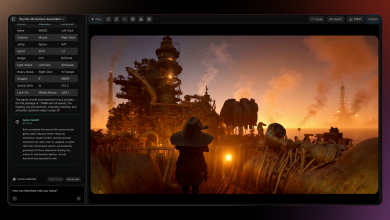Digital marketing has always moved at a rapid pace, but right now we’re witnessing one of the most significant shifts in years. Historically, brands have battled for visibility on Google, investing time, money, and creativity into search engine optimisation. But that game is changing fast.
From the introduction of searchable social content to the proliferation of AI assistants like ChatGPT, Perplexity and Claude, traditional search results are being reshaped.
Instead of serving users with a list of ten blue links to click through, AI tools are now synthesising answers, providing summaries, and, in many cases, removing the need to visit websites at all. Recent studies show that when an AI overview appears in Google, click-through rates can fall by 34.5% on informational queries, with some publishers seeing traffic cut by more than half.
It’s tempting to see this as a threat. After all, fewer clicks and less organic traffic feels like a direct hit to brand visibility. But that’s only half the story. We’re entering a new stage in digital evolution – one where survival won’t depend on who shouts the loudest, but on who adapts the fastest.
A new battlefield for relevance
In the old world of SEO, success often came down to identifying the right keywords, optimising site structure, and producing a steady stream of content. While those fundamentals still matter, AI search engines operate differently. They’re trained to assess signals of trust, authority, and clarity across vast datasets. That means content that’s thin, repetitive, or created to game algorithms is increasingly invisible.
Instead, AI is curating and elevating sources it deems authoritative and reliable. For brands, this makes positioning itself as a trusted voice in the field more important than ever.
This shift creates a new kind of competition. Your rivals are no longer just the companies in your sector chasing the same keywords. They’re anyone producing credible, useful content that AI can surface in response to a query. A consumer searching for fitness advice might be given an answer drawn from a health blog, a medical institution, or even a sportswear brand, depending on which signals AI prioritises. Equally, that means your consumer can find the answer you want to provide via your social team, your web team, your SEO agency, or your media team – highlighting the importance of collaboration across teams and agencies.
In short? It’s survival of the fittest.
From keywords to credibility
So how do brands adapt? First, by rethinking what optimisation means. Traditional SEO focused on visibility, whereas AI optimisation prioritises credibility. The content that wins will be backed by evidence, will answer questions directly and reinforce brand messaging – wherever AI may pull this from.
Research shows users are half as likely to click links when an AI summary appears in results, and only 8% of searches with a summary drive clicks, compared to 15% without one. Brand teams must ask themselves: are we providing genuine value? Are we demonstrating expertise? Are we producing content across all platforms that an AI model could cite as a definitive answer?
Diversifying beyond Google
Another key adaptation is recognising that search is no longer a one-horse race. While Google remains dominant, the rise of social and AI-driven platforms means consumers are finding information in multiple places. A question asked of TikTok, ChatGPT or Perplexity might never touch Google at all.
This fragmentation means brands need to diversify their digital footprint. It’s not just about optimising for Google, it’s about cross-platform visibility. Assess how your brand is currently showing up in TikTok search, Instagram search, YouTube search and Google.
For some, this will mean experimenting with new channels. For others, it will mean doubling down on thought leadership and ensuring content is technically robust and easily referenced.
Thriving, not just surviving
The phrase ‘survival of the fittest’ is often misunderstood as ‘survival of the strongest.’ In truth, it means survival of those most able to adapt to change. That’s the mindset brands need to adopt now.
Yes, this is a new reality. Yes, it will be harder to compete for attention. But as platforms constantly refine their search algorithms, the brands that are already optimising for discoverability will have an advantage.
This is not the end of search. It’s the beginning of a smarter, more competitive environment where adaptability is everything. Brands that embrace this shift with clarity, authority, and agility will not only survive, they’ll lead.
In the age of AI search, survival of the fittest means survival of the most adaptable.
The question is: is your brand ready to evolve?




